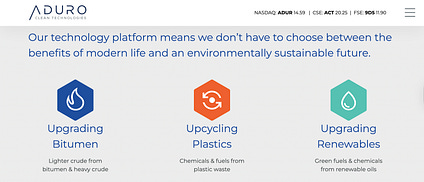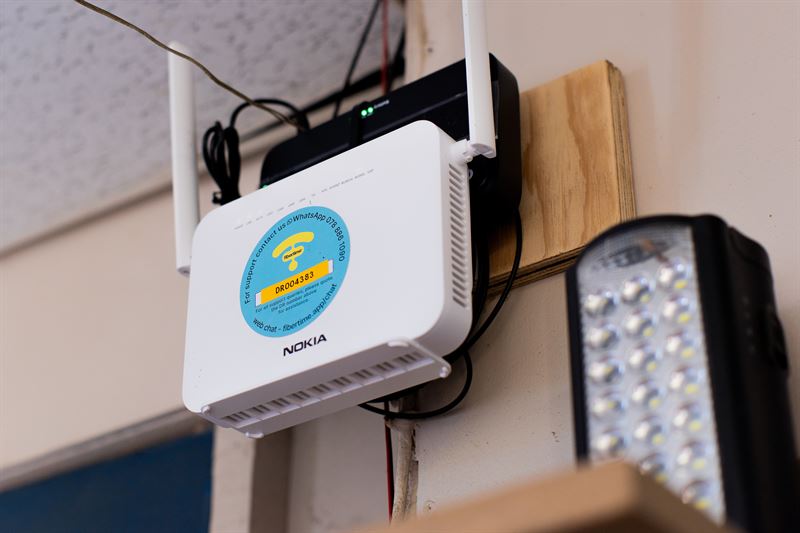Driving Inclusive Industrialisation: UNIDO Champions Women’s Empowerment at the G20 in South Africa – The Voice of Africa

UNIDO Engages in G20 Forum to Advance Sustainable Development Goals through Women’s Empowerment
A United Nations Industrial Development Organization (UNIDO) delegation participated in high-level G20 meetings in Johannesburg, South Africa, from 27 to 31 October. The engagements, held under the theme “Solidarity, Equality, and Sustainability,” focused on aligning women’s empowerment initiatives with key Sustainable Development Goals (SDGs), particularly SDG 5 (Gender Equality), SDG 8 (Decent Work and Economic Growth), SDG 9 (Industry, Innovation, and Infrastructure), and SDG 17 (Partnerships for the Goals).
Strategic Interventions for Inclusive Industrial and Economic Growth
Advocating for Economic Inclusion as a Catalyst for SDGs
During a ministerial panel on women’s financial inclusion, UNIDO’s representative, Ms. Cecilia Ugaz Estrada, emphasized that women’s economic empowerment is a critical driver for achieving multiple SDGs. The discussion highlighted the necessity of expanding women’s access to essential resources as a direct pathway to sustainable development.
- Financial Access: Crucial for fostering female entrepreneurship and contributing to SDG 8 by promoting sustained, inclusive, and sustainable economic growth.
- Digital Tools: Essential for bridging the gender digital divide and ensuring women can participate in modern economies, aligning with SDG 9’s focus on innovation.
- Market Access: A fundamental requirement for integrating women-led enterprises into local and global value chains, thereby advancing SDG 5 by achieving gender equality and empowering all women and girls.
Ms. Ugaz Estrada stated that empowering women is a catalyst for the sustainable industrialization targeted by SDG 9, reinforcing UNIDO’s commitment to inclusive economic transformation.
Fostering Global Partnerships for Gender Equality (SDG 17)
Bilateral Meetings to Strengthen Collaborative Action
In line with SDG 17 (Partnerships for the Goals), UNIDO conducted a series of bilateral meetings to fortify collaborations aimed at gender-responsive industrial development.
- South Africa: Reaffirmed a shared commitment to advancing inclusive and sustainable industrialization, directly supporting SDG 9, with a specific focus on embedding gender equality (SDG 5) within industrial policy.
- Canada: Explored enhanced collaboration on the use of sex-disaggregated data to formulate evidence-based policies, a critical tool for monitoring progress towards SDG 5.
- Brazil: Focused on gender-inclusive industrial strategies in preparation for the upcoming UNIDO General Conference, ensuring that industrial development plans are aligned with SDG 5 and SDG 9.
- Spain: Discussed potential joint initiatives to promote women’s leadership in industrial sectors, a key component for achieving SDG 5 and reducing inequalities as outlined in SDG 10.
Launch of Knowledge Product to Guide Gender-Responsive Policy
Policy Brief on Gender Equality in Industrial Development
UNIDO launched a new policy brief, Gender Equality and Social Inclusion in the Future of Industrial Development, during the G20 meeting. The report provides critical data on women’s participation in G20 economies, revealing a decline in women’s engagement in industrial sectors despite overall growth in female employment. This finding underscores the urgent need for targeted industrial strategies that advance SDG 9 in an inclusive manner.
Recommendations for Action
The report’s findings call for concrete measures to integrate gender equality into industrial policy as a driver of innovation and competitiveness. UNIDO is working with G20 partners to implement these recommendations, which include:
- Developing gender-inclusive industrial frameworks to ensure that progress on SDG 9 benefits all members of society.
- Providing targeted support for women-led enterprises to foster economic growth and decent work (SDG 8).
- Enhancing leadership opportunities for women in industrial sectors to achieve the targets of SDG 5.
Through these initiatives, UNIDO is working to ensure that industrialization serves as a powerful engine for achieving gender equality and building a sustainable and inclusive global economy in line with the 2030 Agenda for Sustainable Development.
1. Which SDGs are addressed or connected to the issues highlighted in the article?
The article discusses issues related to women’s empowerment, economic inclusion, industrial development, and international partnerships. Based on these themes, the following Sustainable Development Goals (SDGs) are addressed:
- SDG 5: Gender Equality – The central theme of the article is advancing women’s empowerment, promoting gender equality in industrial policy, and increasing women’s participation and leadership.
- SDG 8: Decent Work and Economic Growth – The article highlights the importance of women’s economic inclusion, access to finance, and support for female entrepreneurs as drivers for equitable growth.
- SDG 9: Industry, Innovation, and Infrastructure – The focus on “inclusive and sustainable industrialisation,” gender-responsive industrial strategies, and women’s role in industrial transformation directly connects to this goal.
- SDG 17: Partnerships for the Goals – The article details UNIDO’s collaboration with G20 countries (South Africa, Canada, Brazil, Spain), the World Bank, and the African Union Commission to achieve shared goals, which is the essence of SDG 17.
2. What specific targets under those SDGs can be identified based on the article’s content?
Several specific targets can be identified based on the discussions and initiatives mentioned in the article:
SDG 5: Gender Equality
- Target 5.5: Ensure women’s full and effective participation and equal opportunities for leadership in all levels of decision-making in political, economic and public life.
- Explanation: The article mentions initiatives “to promote women’s participation and leadership in industrial sectors” and enhancing “leadership opportunities for women in industrial sectors.”
- Target 5.a: Undertake reforms to give women equal rights to economic resources, as well as access to ownership and control over land and other forms of property, financial services, inheritance and natural resources, in accordance with national laws.
- Explanation: The article repeatedly emphasizes the “urgent need to expand women’s access to finance” and highlights a ministerial panel on “women’s financial inclusion.”
- Target 5.c: Adopt and strengthen sound policies and enforceable legislation for the promotion of gender equality and the empowerment of all women and girls at all levels.
- Explanation: The article discusses UNIDO’s support for initiatives that “embed gender equality within industrial policy frameworks” and the launch of a policy brief calling for “gender-responsive industrial strategies.”
SDG 8: Decent Work and Economic Growth
- Target 8.5: By 2030, achieve full and productive employment and decent work for all women and men, including for young people and persons with disabilities, and equal pay for work of equal value.
- Explanation: The article’s focus on women’s economic inclusion and the finding that “overall female employment has grown” but declined in industrial sectors directly relates to achieving full and productive employment for women.
- Target 8.10: Strengthen the capacity of domestic financial institutions to encourage and expand access to banking, insurance and financial services for all.
- Explanation: The call to “expand women’s access to finance, digital tools, and markets” aligns with this target of improving access to financial services.
SDG 9: Industry, Innovation, and Infrastructure
- Target 9.2: Promote inclusive and sustainable industrialization and, by 2030, significantly raise industry’s share of employment and gross domestic product, in line with national circumstances, and double its share in least developed countries.
- Explanation: The article is centered on “advancing inclusive and sustainable industrialisation” and making industrialization “a force for equality as well as growth.”
- Target 9.3: Increase the access of small-scale industrial and other enterprises, in particular in developing countries, to financial services, including affordable credit, and their integration into value chains and markets.
- Explanation: UNIDO’s commitment to “supporting female entrepreneurs” and “women-led enterprises” directly addresses this target.
SDG 17: Partnerships for the Goals
- Target 17.16: Enhance the global partnership for sustainable development, complemented by multi-stakeholder partnerships that mobilize and share knowledge, expertise, technology and financial resources, to support the achievement of the sustainable development goals in all countries, in particular developing countries.
- Explanation: The entire article describes UNIDO’s engagement with G20 partners, the World Bank, and the African Union Commission to advance women’s empowerment, reflecting a multi-stakeholder partnership.
3. Are there any indicators mentioned or implied in the article that can be used to measure progress towards the identified targets?
Yes, the article mentions or implies several indicators for measuring progress:
Indicators for SDG 5 & 9
- Proportion of women in industrial employment: The article’s new policy brief reveals “a significant decline in women’s engagement in industrial sectors.” This implies the use of data on the proportion of women employed in industry to measure progress towards gender-inclusive industrialization (relevant to Target 5.5 and 9.2).
- Use of sex-disaggregated data: The meeting between UNIDO and Canada’s Assistant Deputy Minister explored “enhancing collaboration on the collection and use of sex-disaggregated data to shape evidence-based gender policies.” This is a foundational element for many gender-related indicators, such as Indicator 5.5.2 (Proportion of women in managerial positions).
Indicators for SDG 5 & 8
- Access to financial services for women: The focus on “women’s financial inclusion” and expanding “women’s access to finance” implies the use of indicators that measure the proportion of women who have access to financial services, such as bank accounts or credit, which relates to Indicator 8.10.2 (Proportion of adults with an account at a bank or other financial institution).
4. Create a table with three columns titled ‘SDGs, Targets and Indicators” to present the findings from analyzing the article.
| SDGs | Targets | Indicators (Mentioned or Implied) |
|---|---|---|
| SDG 5: Gender Equality |
|
|
| SDG 8: Decent Work and Economic Growth |
|
|
| SDG 9: Industry, Innovation, and Infrastructure |
|
|
| SDG 17: Partnerships for the Goals |
|
|
Source: thevoiceofafrica.com
What is Your Reaction?
 Like
0
Like
0
 Dislike
0
Dislike
0
 Love
0
Love
0
 Funny
0
Funny
0
 Angry
0
Angry
0
 Sad
0
Sad
0
 Wow
0
Wow
0












































































